SoundClipJoint®
Ukulele Sound Comparisons
All parameters were held as constant as possible for these comparisons. The same chord shapes and progression were played on each ukulele in the same manner; however, because of the different tunings, they are not all being played in the same key.
The chords are for "Ridin' Down The Canyon" (1939, Autry & Burnette). File sizes are adjusted for the best sound reproduction. Note: Flukes are ukuleles.
| To
listen to ukulele type, click on uke name.
The one heard here is tuned in the common DGBE, as are the four highest pitched strings on the guitar. It has geared tuners.
Has zero fret and peg tuners.
This tuning still uses guitar chord shapes, but the uke tuning makes the guitar shape "A", a "D" on the uke; the guitar shape "D" is a "G", etc. Zero fret and peg tuners.
Zero fret and peg tuners.
This is the most recognizable uke size. Cliff Edwards, "Ukulele Ike," did as much as any one to inspire others to play them. However, many performers played ukes in 1920s and 1930s...some through the 1940s. The Beetles have a long history with ukes. When they were young lads, they saw and heard the popular George Formby play his banjo uke.
Has zero fret and geared tuners.
I prefer the voice of these Maccaferri ukes to that of the above wooden sopranos. The Islander is tuned GCEA with octave high G. Has zero fret and peg tuners.
The most popular early uke player in Great Britain was George Formby, who learned to play uke from sheet music and listening to Cliff Edwards records. George's tradition was in British Music Halls and he needed something louder than a standard uke...so he played the banjo uke.
|
| Suggested
ukulele web sites -- Ian Whitcomb / Bungalow Boys -- http://www.picklehead.com/ian.html Janet Klein / Parlor Boys -- http://www.janetklein.com/ Roy Cone / Ukulele World -- http://www.ukuleleworld.com/ Jim Beloff / Flea Market Music, Inc --http://www.fleamarketmusic.com/ Catfish's Closet -- http://www.catfish1952.com/ |
Contact SoundClipJoint® Relative to details this website Webmaster
E-mail Windmill Productions® copyright 2005
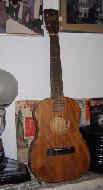 1.
1.
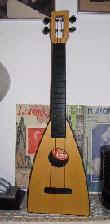 2.
2. 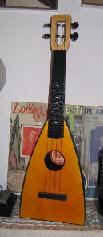 3.
3. 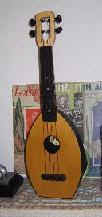 4.
4. 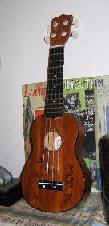 5.
5. 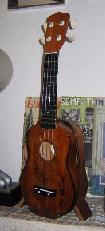 6.
6. 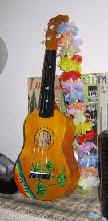 7.
7.  8.
8. 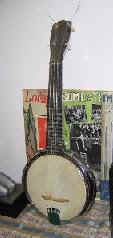 9.
9.